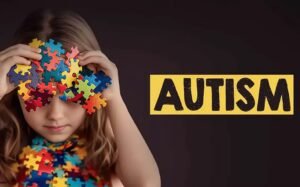
Autistic Spectrum Disorders (ASD) are complex neurodevelopmental conditions that affect individuals differently, manifesting through a range of behaviors and challenges. As awareness and understanding of ASD grow, it’s essential to explore what these disorders entail, their impact on individuals, and the support systems available. This article delves into the key aspects of ASD, providing valuable insights for better comprehension and advocacy.
What are Autistic Spectrum Disorders?
Defining ASD
The term “spectrum” reflects the wide variety of symptoms and severity that individuals with ASD may experience. Some may have significant intellectual disabilities, while others may excel in specific areas such as math, music, or art.
Symptoms and Diagnosis
ASD symptoms generally manifest in early childhood, frequently before the age of three. Common signs include difficulties in maintaining eye contact, delayed speech development, repetitive movements (such as hand-flapping), and a strong preference for routines. Diagnosis is based on behavioral observations and developmental history, usually conducted by a team of specialists, including pediatricians, psychologists, and speech therapists.
Prevalence
The prevalence of ASD has been increasing over the years, with current estimates suggesting that about 1 in 54 children in the United States is diagnosed with ASD.
Impact of ASD on Individuals and Families
Daily Life Challenges
These can include difficulties in social interactions, such as understanding social cues or making friends. Communication barriers may also be present, with some individuals being nonverbal or having limited speech. Sensory sensitivities are common, making certain sounds, lights, or textures overwhelming.
Educational and Employment Considerations
Education for children with ASD often requires specialized approaches and individualized education plans (IEPs) to cater to their unique needs. However, with appropriate support and accommodations, many can thrive in the workplace, particularly in roles that align with their strengths and interests.
Family Dynamics
Caregivers often need to advocate for their loved ones, navigate complex healthcare systems, and provide continuous support. Family support groups and counseling can be beneficial in managing these challenges and fostering a supportive environment.
Support Systems and Interventions
Early Intervention
Early intervention is crucial for children with ASD, as it can significantly improve their development and quality of life. Evidence-based interventions, such as Applied Behavior Analysis (ABA), speech therapy, and occupational therapy, can help enhance communication, social skills, and adaptive behaviors.
Educational Strategies
Inclusive education strategies are vital in supporting students with ASD. This can involve specialized classrooms, individualized instruction, and the use of assistive technology. Collaboration between educators, parents, and specialists is essential in creating effective learning environments.
Community and Social Support
Community programs and support groups provide valuable resources for individuals with ASD and their families. These programs can offer recreational activities, social skills training, and opportunities for building friendships. Online platforms and local organizations often facilitate these connections, providing a sense of community and shared experience.
Employment Support
Job coaching, vocational training, and workplace accommodations are key components of these programs. More employers are recognizing the benefits of neurodiverse employees and incorporating inclusive hiring practices.
The Future of ASD Research and Advocacy
Advances in Research
Ongoing research is critical in understanding the causes of ASD and developing more effective treatments. Genetic studies, brain imaging, and longitudinal research are shedding light on the complexities of ASD. These advances hold promise for earlier diagnosis, personalized interventions, and improved outcomes.
Advocacy and Awareness
Continued advocacy is essential for increasing awareness about ASD and encouraging acceptance and inclusion. Organizations such as Autism Speaks, the Autism Society, and the National Autistic Society work tirelessly to support individuals with ASD and their families, advocate for policy changes, and increase public understanding of ASD.
Conclusion
Autistic Spectrum Disorders present unique challenges and opportunities for individuals and society. By fostering understanding, providing appropriate support, and advocating for inclusive practices, we can enhance the quality of life for those with ASD. Continued research and community efforts are essential in creating a world where individuals with ASD can thrive and contribute meaningfully.
For more in-depth information and resources on ASD, visit Americana Pulse.
